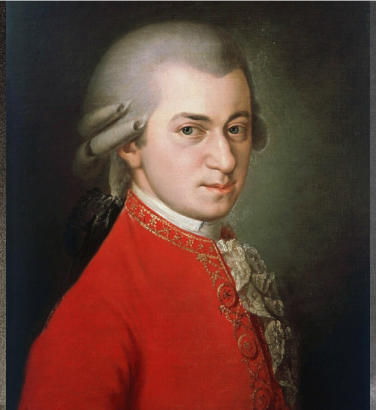
Schubert's Unfinished and other incomplete works
1 Nov 2024
News Story
From left to right: Puccini, Mozart, Mahler and Schubert
There's a special allure to music left incomplete by its composer. Music-lovers are not alone in being left wondering what might have been: for musicians, there's the frustration of not being able to delve fully into the work in question, but for musicologists, the temptation to apply their knowledge of the composer and fill in the gaps as necessary can be overwhelming. It's almost a given that someone, somewhere, will dismiss the result as a pale imitation - everyone's a critic - but a convincing realisation of the composer's vision can be the equivalent of the final piece in the jigsaw, especially if the work in question was their last.
One of the works which came closest to completion was Puccini’s opera Turandot. At the time of his death in late 1924, he had written and orchestrated all but the last 12 minutes or so of music, some of which he had only been able to sketch out. The opera we know today was completed by Franco Alfano (Puccini's publisher's choice rather than his own) in a realisation which was then trimmed by Arturo Toscanini, who conducted the premiere. Despite placing the end of Turandot at two removes from Puccini, this completion has held sway, even in the wake of a few alternatives produced since.
Of Mozart's incomplete works, the two operas he worked on between Die Entführung aus dem Serail and The Marriage of Figaro are of particular interest. He wrote to his father in late 1783 saying he had made a good start on L'Oca del Cairo (The Cairo Goose), only to become frustrated with a plot he found increasingly ridiculous. He eventually gave up and at some point turned his attentions to Lo sposo deluso (The Disappointed Bridegroom), but made even less progress before also setting that aside. The surviving music for both operas lasts about an hour between them, so it has to be said the prospects of their ever becoming anything more than curios are pretty limited.
Can anything be sadder than work left unfinished? Yes; work never begun.
Mahler had almost finished orchestrating the first movement of his Symphony No 10 on his death, and left substantial sketches for the remainder, but half a century would pass before the completion we are most familiar with today came about. Deryck Cooke’s work on the symphony in the 1960s swept away all previously attempted completions, even meeting with the approval of the composer’s widow. That said, some prominent Mahler conductors have declined to perform anything beyond the first movement, deeming the remainder to be insufficiently complete - a reminder that, for better or worse, no realisation can make up for what the composer would have written.
So where does this leave Schubert’s Symphony No 8, a work so defined by its incomplete nature that it is universally known as the Unfinished? He wrote it in 1822 (six years before his death) and there is no sign of his returning to it afterwards, but the reasons for this remain unclear. Symphonies of the period typically consist of four movements, and debate on whether Schubert regarded this one as complete (despite being only two movements long) continues to this day. Sketches do exist for a third, and Schubert may have reused music intended for the fourth in his incidental music for the play Rosamunde. The last point is one of many bones of contention regarding the symphony, and the whole matter has yet to be resolved to universal satisfaction. Whether incomplete or not, however, it is recognised as a pinnacle of Schubert's oeuvre, and features (alongside his Symphony No 5) on our new CD with Principal Conductor Maxim Emelyanychev, released on 1 November 2024.
To add to the confusion, besides being one of several incomplete Schubert symphonies, the Unfinished was once identified as his Symphony No 7 – but that is a different story, which you can read about here. Otherwise, let us leave the musicologists to their discussion and enjoy Schubert's fine music.
Related Stories
![Three men, the first two in 18th century formal dress (one in black and white, one in a red coat), the last in an old photo, smoking]()
What is a sinfonia concertante?
17 March 2025
We delve into the history of a hybrid genre ...![]()
The bassoon concerto
3 March 2025
For the last article in our concerto series (for now), we turn to an instrument too often dismissed as the orchestra's resident joker.![]()
Once upon a time: music with a narrative
3 February 2025
How do composers set about telling a story in music? We look at a few examples.


